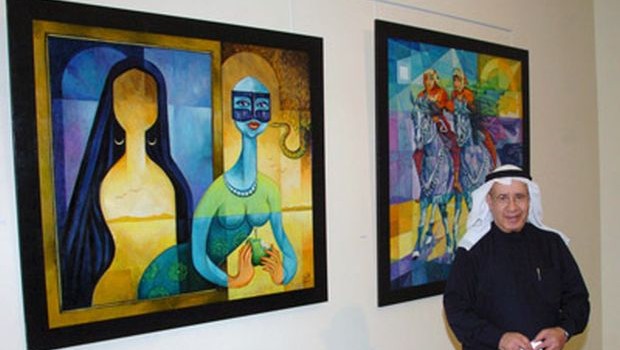Culture is a natural product of society’ it is the inevitable result of a people’s daily practices, principles, and way of life. However, culture is also something that may lose its special characteristics and quality with the passage of time. This could be the result of an openness to other cultures, in addition to natural changes that take place in the ordinary course of life.
History shows that both individual effort and collective behavior adheres to certain customs and traditions. Cultural practices are therefore a measure of both the local environment and of natural and predictable societal development. The value of a society’s cultural production is in line with the number of people who engage and identify with it, but if people fail to do so, culture will suffer.
Gulf governments have worked on developing their cultural and intellectual identities, with the help of their people. This can be seen in the fact that some Gulf governments have worked for many years to form a cumulative, over-arching culture that encompasses the natural development of its people, traditions and customs. This process is an exceedingly complex and lengthy one, and does not produce instant results. It is a process that can be understood through its results, strengthening and entrenching the country’s intellectual and cultural identity.
Looking at the cultural movement across the Gulf, there are a number of institutions that seek to develop Gulf culture. Art galleries, music events and humanities studies at universities and colleges provide people in the Gulf with the opportunity to get involved in cultural events, creating harmony between individual identity, regional identity and global cultural development. In addition to this, there are cultural exchange programs and events that are open to the public, including local and national festivals and celebrations. These social gatherings can strengthen the character of the nation, and help people understand others.
Gulf countries have adopted a system that absorbs their people’s skills and talents, in an effort to create an environment where past experiences and future aspirations are able to coexist. Governments have encouraged the establishment of cultural clubs, centers and institutions to support cultural development and attract experts, researchers and intellectuals, with the purpose of integrating seamlessly with local communities. This is a civilized way of integrating cultural development, particularly following the urban growth in the Gulf that has provided a suitable place for cultural, intellectual and artistic activities. In addition to this, there are also cultural institutions and public libraries that specialize in cultural activities for children, to help them develop a love of and desire for culture.
Despite the fact that dealing with culture as a separate issue is a modern practice in the Gulf, it does not mean that governments did not pay attention to this before. On the contrary, ministerial and institutional work to promote culture in the Gulf was preceded by actual work on the ground. This represented something completely new in terms of preserving historic Gulf culture and heritage, in addition to physical antiquities and historical treasures.
Let us look at the Kingdom of Bahrain model, where archaeological research and exploration was launched form a special unit within the Ministry of Education (before it merged with the Ministry of Information). Finally, the Ministry of Culture and Information became the Ministry of Culture, overseeing two main sectors, culture and tourism.
This confirms that culture was always a major concern for governments in the Gulf, especially in countries with rich and historic cultures. The attention paid to it, and ministerial and institutional efforts in this regard, confirms the Gulf’s maturity in dealing with issues of culture and heritage.
The Bahrain National Theater, which opened in November 2012 during the celebrations of Manama as the Arab Capital of Culture, was patronized by King Hamad Bin Issa Al Khalifah, and Prince Khalifah Bin Salman Al Khalifah, the prime minister of Bahrain, continued to patronize and sponsor the annual Bahrain Festival of Fine Arts, now in its 39th year. Manama will celebrate the 40th anniversary of the festival with the prince next year.
The same thing can be said of the modern city of Dubai, which today is considered to be one of the most important tourist destinations in the world. It has become an international hub that cannot be ignored, despite the fact that just a few years ago the city hardly appeared on the world map. Dubai’s culture today is an urban and art culture. It has become a model for globalization, while managing to create its own unique cultural identity at the same time.
Today, Dubai takes its arts and exhibitions to many places in the world. International artists and intellectuals bring their ideas to the Arab world and East Asia, and even to the West, via Dubai. The Emirate of Dubai would not have become such a social and cultural gateway if it was not for the governments’ efforts and awareness of the importance of establishing a unique cultural and social identity.
The Arab Gulf region is currently going through a cultural building process, which can be seen through the constant cultural exhibitions and international guests, including experts, intellectuals and artists from all around the world passing on their experiences. These festivals, exhibitions and forums have become not only a source of luxury and entertainment, but modes and tools to produce a future individual culture to encourage people to formulate their unique achievements while upholding their intellectual identity.
In the exceptional circumstances our countries are going through, culture and its contributing factors remain a source of hope and joy, serving as a guardian for national identity and emphasizing the role of people and governments in forming the future of their countries.

Trackbacks/Pingbacks